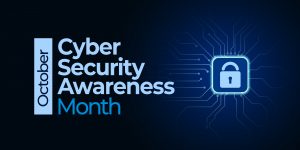April 19, 2025
Think ransomware is your worst nightmare? Think again.
Hackers have found a new way to hold your business hostage - and it may be even more ruthless than encryption. It's called data extortion, and it's changing the rules of the game.
Here's how it works: They don't bother encrypting your files anymore. Instead, they just steal your sensitive data and threaten to leak it unless you pay up. No decryption keys, no restoring your files - just the gut-wrenching fear of seeing your private information splashed across the dark web and facing a public data breach.
This new tactic is spreading like wildfire. In 2024 alone, over 5,400 extortion-based attacks were reported worldwide, an 11% increase from the previous year. (Cyberint)
This isn't just ransomware 2.0. It's a whole new kind of digital hostage situation.
The Rise Of Data Extortion: No Encryption Necessary
Gone are the days when ransomware simply locked you out of your files. Now, hackers are bypassing encryption altogether. Why? Because data extortion is faster, easier and more profitable.
Here's how it works:
●Data Theft: Hackers break into your network and quietly steal sensitive information: client data, employee records, financial documents, intellectual property - you name it.
●Extortion Threats: Instead of encrypting your files, they threaten to publicly leak the stolen data unless you pay up.
●No Decryption Needed: Since they're not encrypting anything, they don't need to deliver decryption keys. This means they can dodge detection by traditional ransomware defenses.
And they're getting away with it.
Why Data Extortion Is More Dangerous Than Encryption
When ransomware first hit the scene, businesses were mainly worried about operational disruption. But with data extortion, the stakes are much higher.
1. Reputational Damage And Loss Of Trust
If hackers leak your client or employee data, it's not just about losing information - it's about losing trust. Your reputation can be destroyed overnight, and rebuilding that trust could take years (if it's even possible).
2. Regulatory Nightmares
Data breaches often trigger compliance violations. Think GDPR fines, HIPAA penalties or PCI DSS infractions. When sensitive data goes public, regulators come knocking with hefty fines.
3. Legal Fallout
Leaked data can lead to lawsuits from clients, employees or partners whose information was compromised. The legal fees alone could be catastrophic for a small or midsize business.
4. Endless Extortion Cycles
Unlike traditional ransomware, where paying the ransom restores your files, data extortion has no clear endpoint. Hackers can keep copies of your data and re-extort you months - or even years - later.
Why Are Hackers Ditching Encryption?
Simply put: It's easier and more profitable.
While ransomware is still on the rise - with 5,414 attacks reported worldwide in 2024, an 11% increase from the previous year (Cyberint) - extortion offers:
●Faster Attacks: Encrypting data takes time and processing power. But stealing data is quick, especially with modern tools that allow hackers to quietly extract information without setting off alarms.
●Harder To Detect: Traditional ransomware often triggers antivirus and endpoint detection and response (EDR) solutions. Data theft, on the other hand, can be disguised as normal network traffic, making it much harder to detect.
●More Pressure On Victims: Threatening to leak sensitive data creates a personal and emotional impact, increasing the likelihood of payment. No one wants to see their clients' personal details or proprietary business information on the dark web.
No, Traditional Defenses Aren't Enough
Traditional ransomware defenses aren't effective against data extortion. Why? Because they're designed to prevent data encryption, not data theft.
If you're relying solely on firewalls, antivirus or basic endpoint protection, you're already behind. Hackers are now:
●Using infostealers to harvest login credentials, making it easier to break into your systems.
●Exploiting cloud storage vulnerabilities to access and extract sensitive files.
●Disguising data exfiltration as normal network traffic, bypassing traditional detection methods.
And the use of AI is making everything faster and easier.
How To Protect Your Business From Data Extortion
It's time to rethink your cybersecurity strategy. Here's how to get ahead of this growing threat:
1. Zero Trust Security Model
Assume every device and user is a potential threat. Verify everything - no exceptions.
●Implement strict identity and access management (IAM).
●Use multifactor authentication (MFA) for all user accounts.
●Continuously monitor and validate devices connecting to your network.
2. Advanced Threat Detection And Data Leak Prevention (DLP)
Basic antivirus won't cut it. You need advanced, AI-driven monitoring tools that can:
●Detect unusual data transfers and unauthorized access attempts.
●Identify and block data exfiltration in real time.
●Monitor cloud environments for suspicious activity.
3. Encrypt Sensitive Data At Rest And In Transit
If your data is stolen but encrypted, it's useless to hackers.
●Use end-to-end encryption for all sensitive files.
●Implement secure communication protocols for data transfer.
4. Regular Backups And Disaster Recovery Planning
While backups won't prevent data theft, they'll ensure you can restore your systems quickly in the event of an attack.
●Use offline backups to protect against ransomware and data destruction.
●Test your backups regularly to make sure they work when you need them.
5. Security Awareness Training For Employees
Your employees are your first line of defense. Train them to:
●Recognize phishing attempts and social engineering tactics.
●Report suspicious e-mails and unauthorized requests.
●Follow strict access and data-sharing protocols.
Are You Prepared For The Next Generation Of Cyberattacks?
Data extortion is here to stay, and it's only getting more sophisticated. Hackers have found a new way to pressure businesses into paying ransoms, and traditional defenses just aren't enough.
Don't wait until your data is on the line.
Start with a FREE Network Assessment. Our cybersecurity experts will evaluate your current defenses, identify vulnerabilities and implement proactive measures to protect your sensitive information from data extortion.
Click here to schedule your FREE Network Assessment today!
Cyberthreats are evolving. Isn't it time your cybersecurity strategy evolved too?




